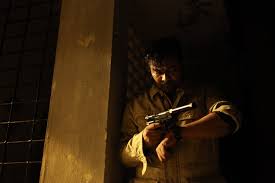Part 1 – Subjectivity in story
Skilled storytellers always want subjective characters in their novels or movies. Perspective takes major priority in a movie for finding theme and tone of the film. So what is the exact meaning of “subjectivity”? A subjective story is one which replicates the mindset and personal opinion of the particular character in a film. There is no need to show the scenes in a point of view style. These types of stories have multiple meanings of morals for the theme. Eventually, the mood of the audience decides the moral of that film. This is the most valid difference between “subjectivity” and “objectivity”.
When it comes to character development, the director wants to put the character closer to the audience. He wants to create empathy for his character. He crafts the plot in such a way that the movie doesn’t become a boring three hour point of view session. In these stories, where subjectivity is the theme, the character mostly ends up realizing that his view was not wholly valid the entire time and turns to an objective mental state.

As a first, let us look at Nolan’s “Memento”, our protagonist named Leonard Shelby has an anterograde amnesia. He can’t hold memories for more than few minutes. So he writes small notes and information which is vital to his body. The screenplay is brilliantly crafted for showing the situation of Leo. The scenes are narrated in a non-linear fashion , giving a twist to the audience. We don’t know “What happened?” or “What will happen?”. This binds the audience strong to the character. We feel the exact condition of Leonard.
The story moves on the narration of Leo. But finally, we realize that he is unreliable. His subjective is wrong and all the pieces of information are not truth. The important thing is that he murdered his wife in past but he forgot that also. Nolan handled realism of neo-noir technically. Leonard is the example for the guy who is “trapped in his own subjectivity and he doesn’t know the truth so he makes it .But still, debates are going on whether he murdered or not.

The theme of the movie also changes with respect to subjectivity. It is hard to make dynamic morals, which are changing for different perspectives. Mysskin’s movies mostly deal with multi-subjectivity. In Onaayum Aatukuttiyum, most of the characters make the audience emotional.
We can’t judge statically as “He is good” or “This one was bad”. And even Mysskin also don’t want to give the perspective himself. He constructs his characters and leaves them to the audience for approval. His many camera angles were bird eye views which symbolize God’s perspective. Pisasu movie also tells, “Don’t believe the protagonist’s perspective.” Our main character in the story thinks ghosts are scary and bad. But eventually, he realizes his misunderstanding of subjectivity.
We all have different perspectives with respect to tastes. Anyway, subjective storytelling is essential for a good plot as we saw in the above examples. In the coming posts, we are going to dissect more elements in movies similar to subjectivity. Until then, stay connected!
– Amuthan M
Second year, EIE.